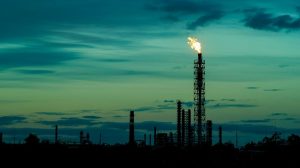Stakeholders in the oil and gas industry have called for stronger policies and enforcement on methane emissions.

They particularly tasked the Federal Ministry of Petroleum Resources, the Nigerian Upstream Petroleum Regulatory Commission (NUPRC), and Nigerian Midstream and Downstream Petroleum Regulatory Authority (NMDPRA) with this responsibility.
This is contained in a communique at the end of the multi-stakeholder dialogue in Abuja on “Strengthening Methane Emissions Reduction Strategies in Nigeria’s Gas Expansion Plans to Achieve a Just Energy Transition”.
The communique was produced by the Centre for Journalism Innovation Development (CJID) and issued by its Project Manager, Health Journalism Project, Adebowale Adedigba, on Friday, August 16, 2024, in Abuja.
They urged the NUPRC and NMDPRA to enhance the existing regulatory frameworks on methane reductions to ensure stringent enforcement of their policies, and to require third-party verification by companies.
The stakeholders tasked the Federal Government and the National Council on Climate Change (NCCC) to secure adequate funding for methane reductions.
They said this could be achieved by forging partnerships with international financial institutions such as the World Bank, African Development Bank, and donor agencies.
The communique urged the stakeholders to explore innovative financing mechanisms, including green bonds, carbon credits, and public-private partnerships, to support these initiatives.
They urged the relevant government organisations to promote gender inclusivity in energy policies, identify disparities and opportunities for women, while developing policies that ensure suitable opportunities in the workforce.
According to the communique, the relevant government agencies should collaborate to develop tailored, accessible and improved Monitoring Reporting and Verification (MRV) systems for the oil and gas sector.
“Stakeholders, including oil and gas companies, government agencies, and civil society, should be engaged to develop comprehensive leak detection and repair programmes.
“Cutting-edge technologies should be deployed for efficient leak detection and civil society organisations should be strengthened to monitor, report, verify, and disclose emissions data, towards holding companies and government accountable for methane emissions,” it stated.
Other recommendations proposed by stakeholders include investment in research and development and fostering multi-stakeholder collaboration.
The multi-stakeholders meeting was organised by the Natural Resource Governance Institute (NRGI), in partnership with the CJID and the Nigeria Extractive Industries Transparency Initiative.
NRGI also unveiled a new briefing paper on “Strengthening Methane Emissions Reductions in Nigeria’s Oil and Gas sector”.
By Martha Agas
